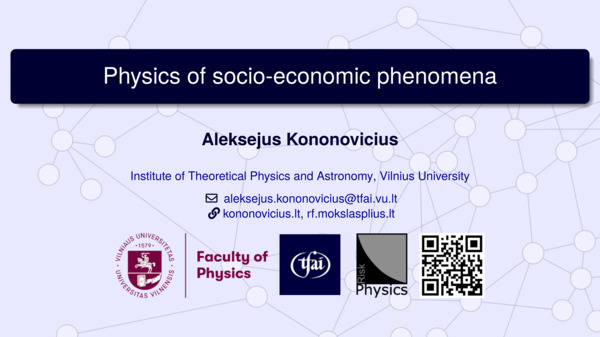N. Oreskes: The Big Myth
From time to time I enjoy catching up to the seminars hosted by the Santa Fe Institute and shared on their Youtube page. In this seminar Naomi Oreskes (from Harvard University) discusses her recent book (written together with Erik M. Conway) titled "The Big Myth: How American Business Taught Us to Loathe Government and Love the Free Market". This seminar (and the book, I guess) dives into the historical context of how free market fundamentalism became dominant economic ideology in the US and the western world, in general.
For me key points of the talk were that Adam Smith, who pseudo-economists in Lithuania like to paint as free market saint, was on a big fan of the "invisible hand". He wrote that regulation might be warranted when the "natural liberty of a few individuals endangers the security of the whole society". Providing a regulatory advice on dealing with reckless banking practices of his own time:
The obligation of building [fire] walls, in order to prevent the communication of fire, is a violation of natural liberty exactly of the same kind with the regulations of the banking trade which are here proposed.
A few more comments clarifying Adam Smith's relationship with the free market ideology can be found in this article by Jag Bhalla on evonomics.com.

